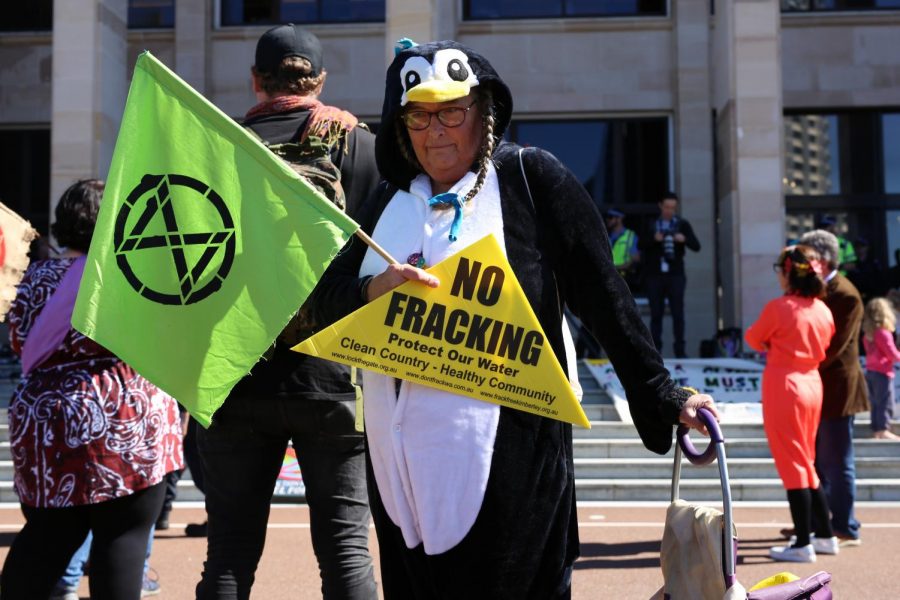WHAT THE FRACK?!?
December 8, 2014
There has been a lot of debate about fracking recently. Commercials flood the television and citizens fight with drilling companies over land use. Although environmentalists try to push the U.S away from fracking, the country needs to produce more of it’s own fossil fuels. Fracking should not be banned because it produces more jobs and revenue, and allows us to depend less on foreign imports.
The ads try to explain it, but what really is fracking? The facts show that hydraulic fracturing is when a mixture of 90% water, 9.5% sand, and .5% chemicals are injected deep into the ground at a very high pressure to crack the shale underground and extract natural gas and oil from the rock. When this occurs, the fluid is injected far below aquifers and over 6000 feet below the earth’s surface. Then the oil is drawn back up the well and transported elsewhere.
More oil equals more jobs. Currently, over 150,000 people are unemployed in Colorado, according to a July 18th Denver Post article by Howard Pankratz. In 2012 the maintenance and running of fracking wells in Colorado created about 110,000 well-paying jobs. If the state had more wells, that would mean more jobs for Coloradans. These jobs include working with the rigs and high pressures, which can be dangerous. However, more jobs are created in the transportation of the fuels, from driving trucks to building pipelines. This idea of getting more from the environment will definitely help with the current growth of fossil fuel use.
The economy is another factor that fracking helps. Not only will it create more revenue, but it also helps the country move away from importing oil. When the U.S is dependent on foreign oil, it is very bad for the economy because if those countries refuse to sell to the U.S, then the country is pretty much screwed. It would be better if we had enough fossil fuels to sustain America and then maybe start exporting some. That would help us get rid of some of the debt, but that’s a whole other argument. What really will start making a positive impact on the economy is if the country continues to use fracking and increases the supply of oil.
So the positives of fracking have been laid out, but the opposition to fracking has clear reasons why it shouldn’t be allowed. People against fracking believe it has a negative impact on the environment, specifically ruining farm land or contaminating people’s water sources. After using a well, however companies are required to reclamate the area around it, so it’s like it was before. Most of the time, the space used for a well is only a fraction of what it was after the reclamation process. Also, there is no proven evidence that contaminated water sources correlates directly to fracking despite what the those dang commercials say. Lastly, yes, fracking releases carbon that was previously underground into the air. But if that’s so bad then why does most of the opposition to fracking still drive a car that runs on oil. People complain about how bad fracking is, but how else would they get gas into those cars? Almost everyone depends on oil and natural gas for some aspect of daily life, so there is no other option other than fracking to keep up with the demand.
Considering the fact that the whole world practically runs on fossil fuels nowadays, the environment we have needs to be used to keep up with the growing demand. Eventually, the ground will run out of oil and natural gas, but for now hydraulic fracturing taps into rocks that should keep the whole world running for a while.



